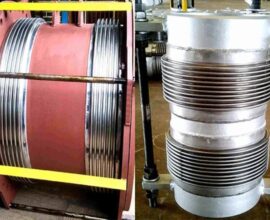In the dynamic world of textiles, sourcing high-quality yarn can make or break a production line. With sustainability and efficiency on everyone’s mind, identifying the right partners is crucial. This is why collaborating with a reliable Viscose Yarn Manufacturer can be a game-changer for your textile business.
Why Viscose Yarn Matters
Viscose yarn has carved a niche in the textile industry due to its silk-like sheen, breathability, and versatility. Unlike synthetic alternatives, it offers natural comfort, making it ideal for apparel, home textiles, and industrial fabrics. The global demand is surging, with textile experts noting a steady 5–7% annual growth in viscose fiber consumption (Fibre2Fashion).
Top Criteria for Selecting a Viscose Yarn Supplier
Not all yarn suppliers are created equal. To ensure consistent quality and timely delivery, consider these critical factors:
- Fiber Quality: Premium viscose yarn should be smooth, strong, and uniform. Low-quality fibers can result in pilling and production inefficiencies.
- Production Capacity: Choose suppliers who can handle your volume demands without compromising quality.
- Sustainability Practices: Eco-conscious production is no longer optional. Suppliers adhering to green standards reduce environmental impact and appeal to conscious consumers.
- Technical Support: A supplier offering design and weaving advice can help you innovate and troubleshoot production challenges.
Leading Viscose Yarn Suppliers in India
India’s textile ecosystem is rich with experienced manufacturers. Top players not only supply yarn but also integrate modern technology to maintain uniformity and strength. Partnering with reputed Fabric Suppliers in India ensures access to finished fabrics, which can streamline procurement for garment manufacturers.
Among these, several suppliers stand out for combining quality with scalability:
- Gujarat-based mills offering cutting-edge spinning techniques.
- Textile hubs in Maharashtra focusing on eco-friendly viscose yarn.
- Smaller boutique suppliers emphasizing organic and blended options alongside mainstream products.
Complementary Textile Resources
To diversify your supply chain and maintain quality across your product line, it is wise to explore related sources such as Organic Cotton Manufacturers in India and Textile mills in Gujarat. These partnerships can create opportunities for blended fabrics, offering both comfort and durability to end-users.
Industry Trends to Watch
Recent market trends suggest a few interesting directions for viscose yarn:
- Eco-Friendly Production: There’s a growing preference for yarn produced with sustainable chemicals and processes.
- Customization: Manufacturers now offer tailored yarn counts, textures, and dyeing options to match client requirements.
- Integration with Digital Tools: Advanced mills leverage AI-driven quality control, reducing defects and ensuring consistency.
FAQ
What industries use viscose yarn the most?
Viscose yarn finds applications in fashion apparel, home textiles, and industrial fabrics. Its softness, sheen, and moisture absorption make it versatile.
How can I ensure the sustainability of the yarn I purchase?
Look for suppliers adhering to environmental certifications, responsible chemical usage, and eco-conscious production methods. Partnering with verified Organic Cotton Manufacturers in India is also a good approach.
What advantages do Indian viscose yarn suppliers offer?
Indian suppliers provide competitive pricing, scalable production, a wide range of yarn counts, and access to specialized Textile mills in Gujarat with advanced spinning technology.
Can viscose yarn be blended with other fibers?
Yes, blending viscose with cotton, wool, or synthetic fibers enhances durability, texture, and cost-effectiveness, giving designers more flexibility.
Also Read: A Complete Guide on the Top Advantages of Using Double Yarn
Final Thoughts
Choosing the right viscose yarn supplier is a blend of art and strategy. Prioritize quality, sustainability, and support services while exploring collaborative opportunities with fabric and cotton manufacturers. By carefully curating your supply chain, your textile business can achieve both innovation and efficiency in today’s competitive market.
Blog development Credits:
This blog was conceptualized by Organic Cotton, researched and crafted using advanced AI tools like ChatGPT, Google Gemini, and Copilot, with final SEO optimization from Digital Piloto Private Limited.





